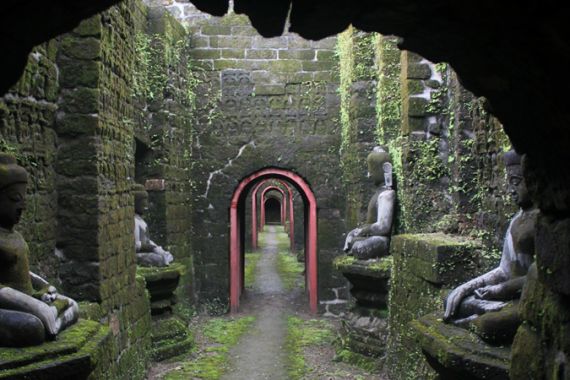Myanmar investigates anti-Rohingya violence
Government commission makes first visit to Rakhine state to investigate violence between Buddhists and Muslims.

The government-appointed commission tasked with investigating violence in Rakhine State, Myanmar, has just completed its first visit to the area. The 27 members saw, first-hand, segregated communities following fighting that resulted in the deaths of at least 80 people and the burning of homes, businesses, Muslim mosques and Buddhist temples.
Around 60,000 Rohingya Muslims remain in camps after violence in June which followed the rape and murder of a Buddhist girl allegedly by three Muslim men. There are also thousands of Buddhists who are still displaced after their homes too were burned to the ground.
In the Muslim majority town of Maungdaw, Rakhine Buddhists are in camps, while in the capital Sittwe, where Buddhists have a slim majority, the homeless are mainly staying in monasteries where their numbers are decreasing as people slowly regain enough courage to return to their communities.
The Rohingya, however, have had their freedoms restricted. Officially, they’ve been told they can leave the camps, but with the caveat from security forces that their safety cannot be guaranteed.
‘Foreign invaders’
“We are not allowed to go back to our houses,” said Jakersharife, a Rohingya man whose sister and grandmother were killed in the fighting.
“We want our homes back. We want our land, our business and peace,” he said.
The investigation commission has been tasked with finding out what happened, why it happened and to make recommendations on the best way to move forward and end a dispute that’s been going on for decades. But one of the worries for the Rohingya is that some members of the panel may have already made up their minds who to blame.
|
Myanmar’s Rohingyas unlikely to return home |
Former political prisoner Ko Ko Gyi is on the commission, despite previously saying that his 88 Generation student protest movement would never recognise the Rohingya as an ethnic minority group of Myanmar and he and his followers would be willing to take up arms to fight against “foreign invaders”.
While on the trip to the affected areas, another senior member of the commission was heard to say that the “Bengali Muslims” were trying to occupy the state, like many other Buddhists, preferring not to use the term Rohingya, feeling it gives credibility to their fight to be recognised as one of the country’s official ethnic minority groups. Those attitudes are hardly an encouraging way to start what should be a neutral study into a long running problem for the country.
However in flying over the state for the first time, another member observed that there was so much vacant land and he wondered why room couldn’t be found for everyone to coexist peacefully.
‘Culture and identity’
The opinion that “they don’t belong” is common among a predominantly Buddhist population that largely views the Rohingya as illegal immigrants from neighbouring Bangladesh, where they’re also not wanted.
“We are worried about losing our identity and culture,” said Htwe Maung, a historian in the old state capital of Mrauk U, a town which relocated its entire Rohingya population out of the centre almost 20 years ago to try to prevent the Islamic influence from becoming too strong and overshadowing Buddhist traditions.
“If you look at areas closer to the Bangladesh border, the Muslims have grown in strength so we regard ourselves as the defender of Myanmar’s western wall,” he said.
 |
| Follow our special coverage |
The government has said that the Rohingya must be screened to determine who can be classed as legal or illegal. Those who don’t pass the test and are not eligible for citizenship will be kept in camps and ultimately sent to another country. At this stage the criteria will include being born in Myanmar and at least two generations of family members must have lived in the country.
Realisically, the tension is too high for the Rohingya in Sittwe to be able to return to their homes and for most of them, tents with dirt floors are the best they can hope for in the meantime. The government is building more substantial accommodation, but well away from the centre of town where they used to make their living.
In the weeks and possibly months ahead, the state commission looking into the violence will send researchers to the area to conduct more interviews with people affected and religious leaders. But if the overriding sentiment among Buddhists is anything to go by, it maybe too much to expect the panel to come up with recommendations that will be satisfactory to the Rohingya population.